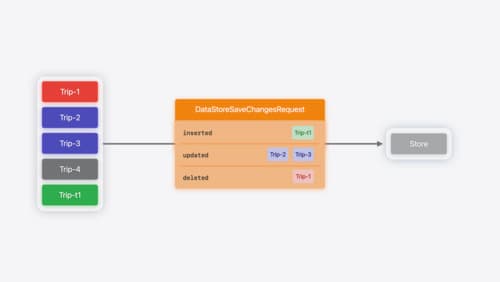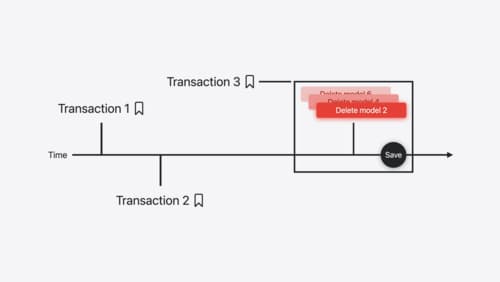Tell me about SwiftData
Asked on 2024-07-31
1 search
SwiftData is a framework introduced in iOS 17 that allows developers to model and persist their app's data across all of Apple's platforms using Swift. It leverages modern Swift language features like macros to write code that is fast, efficient, and safe. Here are some key features and updates about SwiftData:
-
Modeling and Persistence: SwiftData makes it easy to build your app's model layer and persist it across app launches. It provides not only persistence but also modeling, schema migration, graph management, and synchronization with CloudKit (What’s new in SwiftData).
-
Custom Data Stores: SwiftData allows the use of custom data stores, enabling developers to store data using alternative backends like SQLite, remote web services, or JSON files. This flexibility is achieved through the new datastore protocol (Platforms State of the Union, Create a custom data store with SwiftData).
-
Schema Macros: SwiftData introduces new macros to avoid duplicate models and optimize queries. The
#Uniquemacro ensures no duplicate entries for a set of properties, and the#Indexmacro makes queries more efficient by indexing commonly queried properties (What’s new in SwiftData, Platforms State of the Union). -
History API: SwiftData includes a history API that tracks all changes in the datastore, which is useful for syncing local changes to a remote web service or inspecting recent changes. This feature is particularly beneficial for apps that need to process data modifications, such as syncing with a server or responding to changes from an app extension (Track model changes with SwiftData history).
-
Xcode Previews: SwiftData integrates well with Xcode previews, allowing developers to create great previews for their SwiftUI views. This is facilitated by custom containers that can be used with Xcode previews (What’s new in SwiftData).
Relevant Sessions
- What’s new in SwiftData
- Platforms State of the Union
- Create a custom data store with SwiftData
- Track model changes with SwiftData history
For more detailed information, you can watch the sessions mentioned above.

Platforms State of the Union
Discover the newest advancements on Apple platforms.

Create a custom data store with SwiftData
Combine the power of SwiftData’s expressive, declarative modeling API with your own persistence backend. Learn how to build a custom data store and explore how to progressively add persistence features in your app. To get the most out of this session, watch “Meet SwiftData” and “Model your schema with SwiftData” from WWDC23.

Track model changes with SwiftData history
Reveal the history of your model’s changes with SwiftData! Use the history API to understand when data store changes occurred, and learn how to use this information to build features like remote server sync and out-of-process change handing in your app. We’ll also cover how you can build support for the history API into a custom data store.
